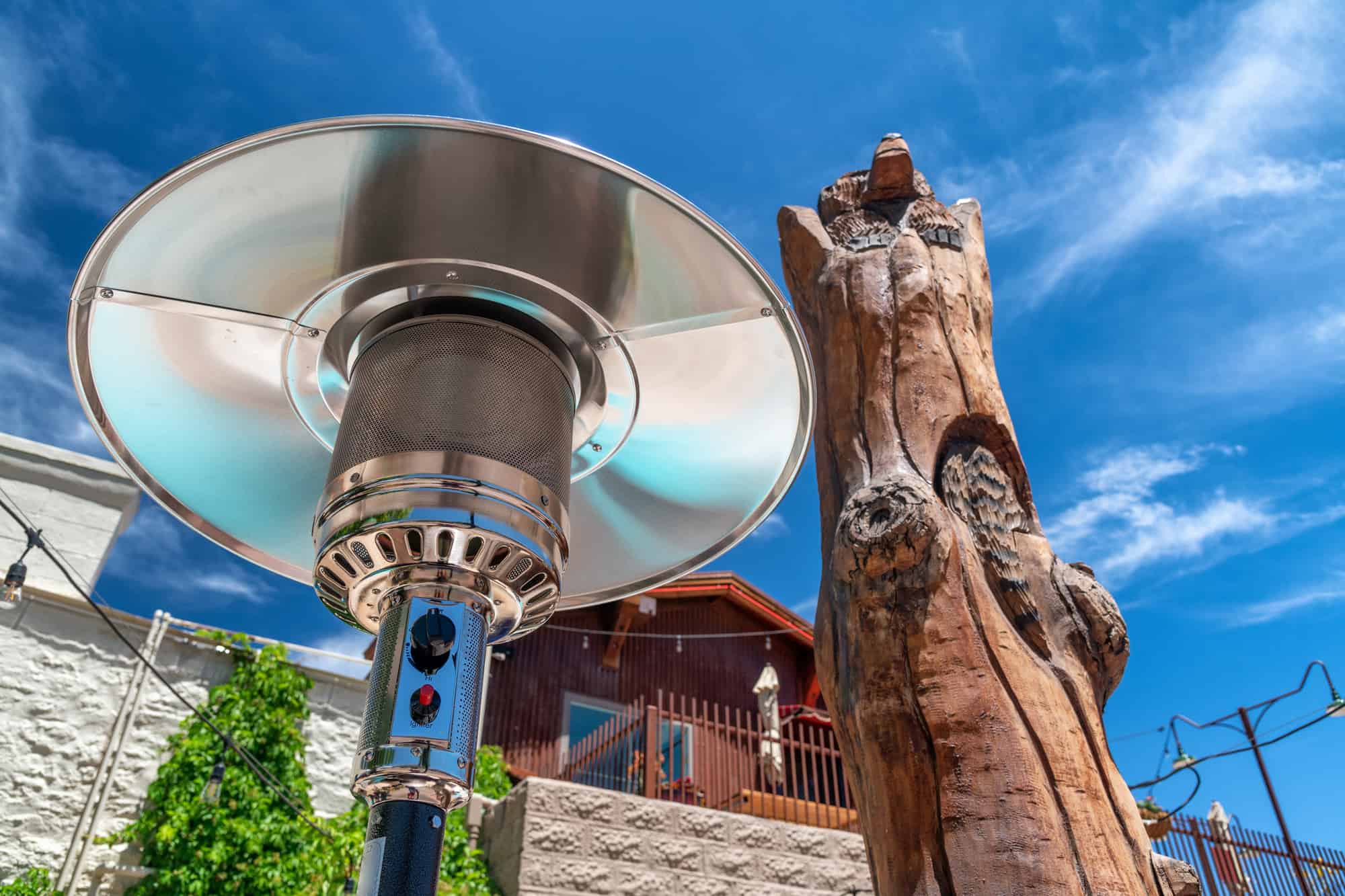When the chilly months finally pass, you may be wondering how to store your outdoor patio heater safely.
There are quite a few steps to patio heater maintenance that many homeowners choose not to follow (to their own peril). When you take good care of your patio heater, it can last you for many years.
Here are our best tips for how to properly store an outdoor patio heater. Following these will allow you to maintain it through the years as well.
Outdoor Patio Heater Storage Steps
Disassemble
Yes, it is an unfortunate truth; you do need to take the heater apart before storing it.
A propane patio heater cannot be stored while it is connected, as this can be a safety hazard. In addition to the danger, you may also find issues with rotting or deterioration of connections when left that way for long periods. As far as disassembly is concerned, you may need to refer back to your owner’s manual, but it is usually just a matter of unscrewing a few parts.
Cleaning
Outdoor heaters tend to have issues with both bugs and rust. After you take your heater apart, be sure to clean out all areas where it looks like bugs have made homes. A good indication that you’ve had an infestation is the presence of small droppings and discarded husks.
If you see rust starting, you will want to treat that as soon as possible.
When cleaning your heater don’t take out the power washer and go for it, simply take a damp cloth and wipe the entire thing down carefully.
Storage
Now you have your clean patio heater ready for storage. Be sure to put it in any clean, dry location (again, as long as it is not still attached to the propane).
We’ll get to the propane tank steps shortly. However, if you have an electric heater, you won’t need to worry about the propane portion of this guide.
Putting It Back Together
When it is time to put your patio heater back together again, make sure that you follow all manufacturer’s guidelines. However, here are some general guidelines on putting the patio heater back together:
- Cracks or gaps in the fittings must be repaired before the first use.
- If you have any questions about the safety / operation of your patio heater, call a professional/the manufacturer.
How To Store A Propane Tank
How you store your propane tank is probably the most crucial part of the entire process. After all, that’s where the flammable material lives.
First off, you should not store your propane tank inside or in a shed.

Propane tanks should be left outside in a well-ventilated area. Try to keep the propane tank in an area where it is dry and not exposed to a lot of rain. Rain will tend to rust the fittings on the tank. This reduces the structural integrity and shortens the life of the tank.
Propane tanks will actually do fine outside in a wide range of temperatures, from negative forty degrees Fahrenheit up to one hundred and twenty degrees.
No matter what, make sure that wherever you keep your tank that it is away from flammable materials. We highly recommend making sure that your tank is empty before storing it. However, even when your tank is empty, it can still be a fire hazard and should be handled with extreme caution.
Overnight Storage
We have discussed what it takes to store your patio heater for the off-season. Now, let’s explore what you should do when you’re done using your patio heater for the night. Luckily the process is not as extensive and just takes a few simple safety checks.
Make sure that your patio heater is unplugged if it is electric and make sure that the propane is disconnected if you have a propane heater.
Much like the off-season storage, make sure the heater not near anything flammable. For example, if a guest left a patio cushion near the heater, you would want to remove it before putting the heater away.
Lastly, most heaters are made to withstand some weather conditions. However, the most damaging weather to an outdoor heater is wind.
Outdoor heaters and wind do not mix very well, and a strong gust can often blow an outdoor heater over (we wrote a handy guide on how to keep your patio heater from tipping over). If this happens, it could be the end of your outdoor heater. If you are expecting any kind of wind, make sure your heater is safe from the incoming turbulence.
Conclusion
When dealing with outdoor patio heaters safety is always the biggest priority. If you have a propane heater, you must follow the procedures for propane tank storage. This is the most important takeaway. Keeping outdoor heaters well maintained will give you many years without having to replace them.

